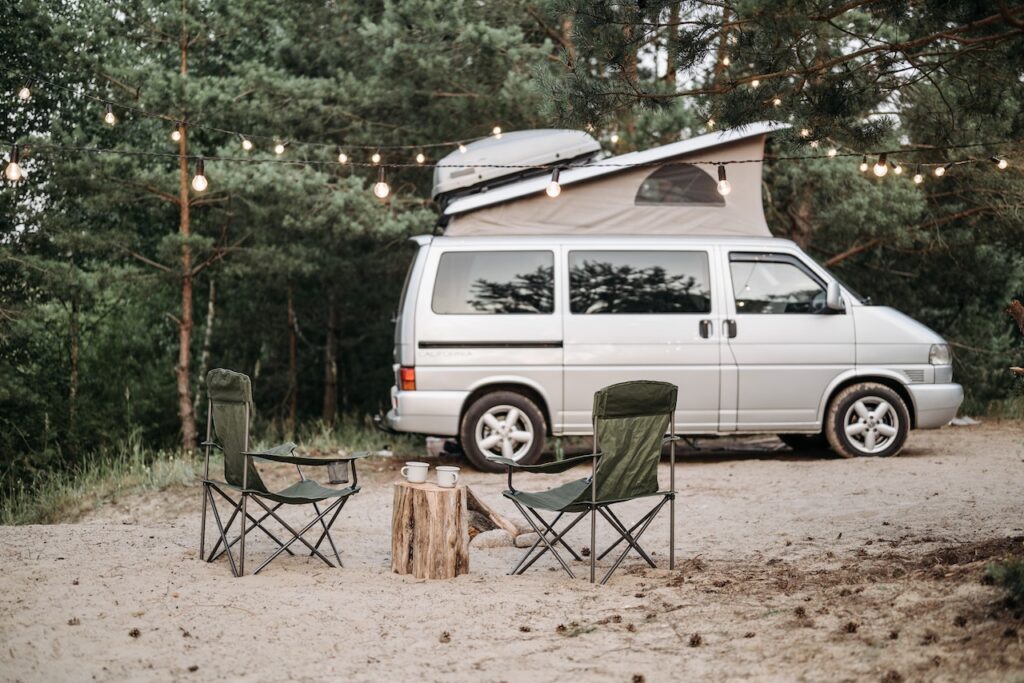Buying an RV is a big investment, so creating a budget can help you make smart choices and stay financially healthy. Here’s a step-by-step guide to creating a good budget for your RV purchase.
It depends on your financial situation
First, take a look at your overall financial situation. Look at your current and past income, savings, and expenses to see how much you can comfortably spend on an RV. Take into account any debts or financial obligations you have now that could make this purchase difficult for you. Knowing how much money you have can help you create a reasonable budget and avoid overspending.
Figure out what type of van and what features you want
Prices vary for different types of RVs and their features. Choose the type of RV that best suits your needs, such as a Class A, Class B, or Class C RV, and make a list of the equipment you need. This will help you better understand the costs and narrow down your options. For example, a Class A motorhome that is fully equipped with high-end amenities will cost significantly more than a basic Class B motorhome.
Make a fair budget
Set a reasonable budget for your truck purchase, based on your financial situation and the type of truck you want. Your budget should include:
- Purchase price: This is the most obvious expense, but the price can vary greatly depending on the make, model, age, and condition of the van. Find out how much new and used models cost to get a better idea of what to expect.
- Sales tax and fees: You’ll need to factor in sales tax, registration fees, and other fees that the government may impose. These fees can add significantly to the total price of your RV.
- Insurance: Find out how much RV insurance costs, as it can be higher than regular auto insurance. Get quotes from multiple insurance companies to help you budget.
- Finance costs: If you need a loan to pay for your purchase, consider the loan terms and interest rate. Find out how much the loan will cost you in total over the term, including interest payments.
- Maintenance and repairs: Set aside money for repairs and ongoing maintenance. To keep your RV in good condition, you’ll need regular maintenance.
- Upgrades and add-ons: If you want to purchase additional parts or add-ons, you’ll need to factor these costs into your budget. Accessories can include everything from kitchen utensils to custom storage solutions.
- Costs of doing business: Figure out what fuel, camping fees, and other costs of doing business are. You’ll need to factor these ongoing costs into your overall budget so that you can meet the financial demands of owning an RV.
Factor in extra costs
In addition to the initial purchase price, you’ll need to factor in the following costs:
- Accident fund: It’s a good idea to save some money in case your RV needs repairs or has other unexpected issues.
- Depreciation: Keep in mind that RVs lose value over time, just like any other vehicle. This may not affect your budget right away, but it is something to consider when planning your financial future.
Research your financing options
If you can’t afford to pay the lump sum for your RV, consider your financing options. Many auto dealerships offer financing plans, but it’s also a good idea to compare rates from banks, credit unions, and online lenders. Look at the interest rates, monthly payments, and loan terms of different loans to find the one that best fits your budget.
How much it will cost you in the long run
After you initially purchase an RV, there are ongoing costs. Develop a long-term budget that includes regular maintenance, insurance renewals, and the costs of running your business. This will help you keep track of your money and ensure that you are prepared for the financial responsibilities that come with owning an RV.
Track your expenses
After you purchase your RV, keep track of all the costs that come with it. Use a budgeting tool or app to track how much you spend on things like repairs, insurance, gas, and other expenses. By tracking your spending regularly, you can stick to your budget and make changes as needed.
Review and Change Your Budget
Finally, review your budget regularly and make changes as needed. As you get more comfortable with your RV, you may find that you need to adjust your initial estimate.



